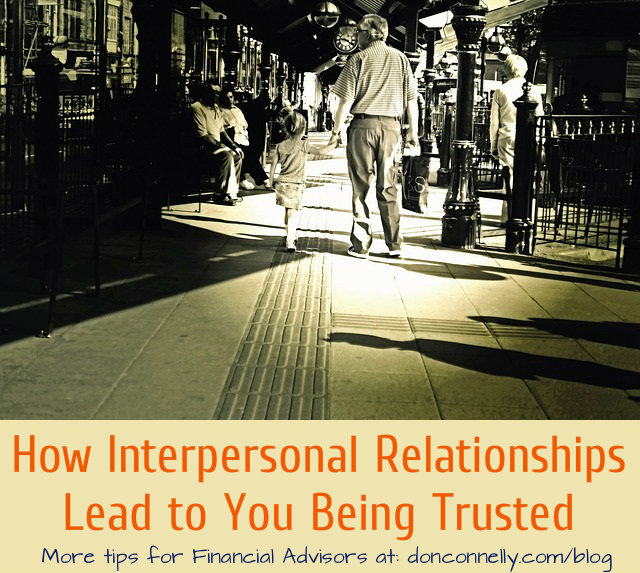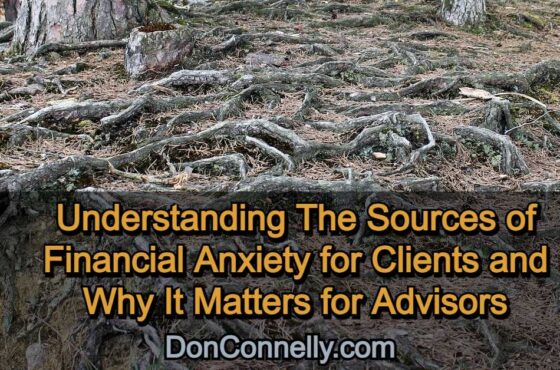How Interpersonal Relationships Lead to You Being Trusted
 By now you know my belief about gathering assets. If someone likes you, trusts you and thinks you are smart, you get the assets. If another Advisor ranks higher in those categories, he or she gets the assets.
By now you know my belief about gathering assets. If someone likes you, trusts you and thinks you are smart, you get the assets. If another Advisor ranks higher in those categories, he or she gets the assets.
Follow the Golden Rule and you will be likable. Simplify the business so that your listener can understand every word you say and you will be perceived as smart.
Do what you say you are going to do and you will earn the other person’s trust.
Like most things in life, the solution to each of these perceptions is simple. It’s not easy, but it is simple.
The New York Times conducted a survey on trust. It was a New York Times/CBS survey reported in July 1999. I read about it in Annette Simmons’ book “Whoever Tells the Best Story Wins”. The respondents were asked what percentage of people in general is trustworthy. Their answer was 30%. They were then asked what percentage of the people they know is trustworthy. The answer was 70%.
That is statically impossible, but very telling. If someone knows you, they will be more than two times likely to trust you than if you were a stranger.
The highest level of trust is called identity-based trust. This is where a Financial Advisor makes his or her living.
This is simply not trusting you to show up on time or trusting that you will obey the law. This is the trust that we give only to the most important people in our lives. And next to the family doctor, you are the most important person that family will ever meet.
When you have attained this level of trust, people will allow themselves to be vulnerable. They will share their hopes, their dreams and their insecurities. They will allow themselves to be helped.
Knowledge-based trust enables clients to understand you enough to predict your behavior. Identity-based trust enables clients to know what you really care about. They know you’ll do the right thing.
The key to identity-based trust is the strongest possible relationship.
People can’t trust you until they know you. Simply put, the success of your professional practice depends upon your ability to create and maintain long-term, identity-based relationships.
You know how precious these relationships are because you have so few of them. They are rare. And you know that it doesn’t take much to knock a relationship down to a lower level of trust. One little slip can sometimes be all it takes.
If you don’t , you run a risk. If you tell even the smallest fib, you run a risk. It takes a long time to build up trust and a split second to destroy it. The stronger a relationship is, the more it can take a hit.
So make it your major goal to take your client relationships to the next level and the level after that.
Always do what you say you are going to do. Be predictable. Clients don’t take it well when their predictions are wrong. Trustworthy actions have predictable results. Untrustworthy actions do not. And therein lays the danger of breaching a trust. You have no way of knowing how your client will react. But you can take a pretty good guess.



